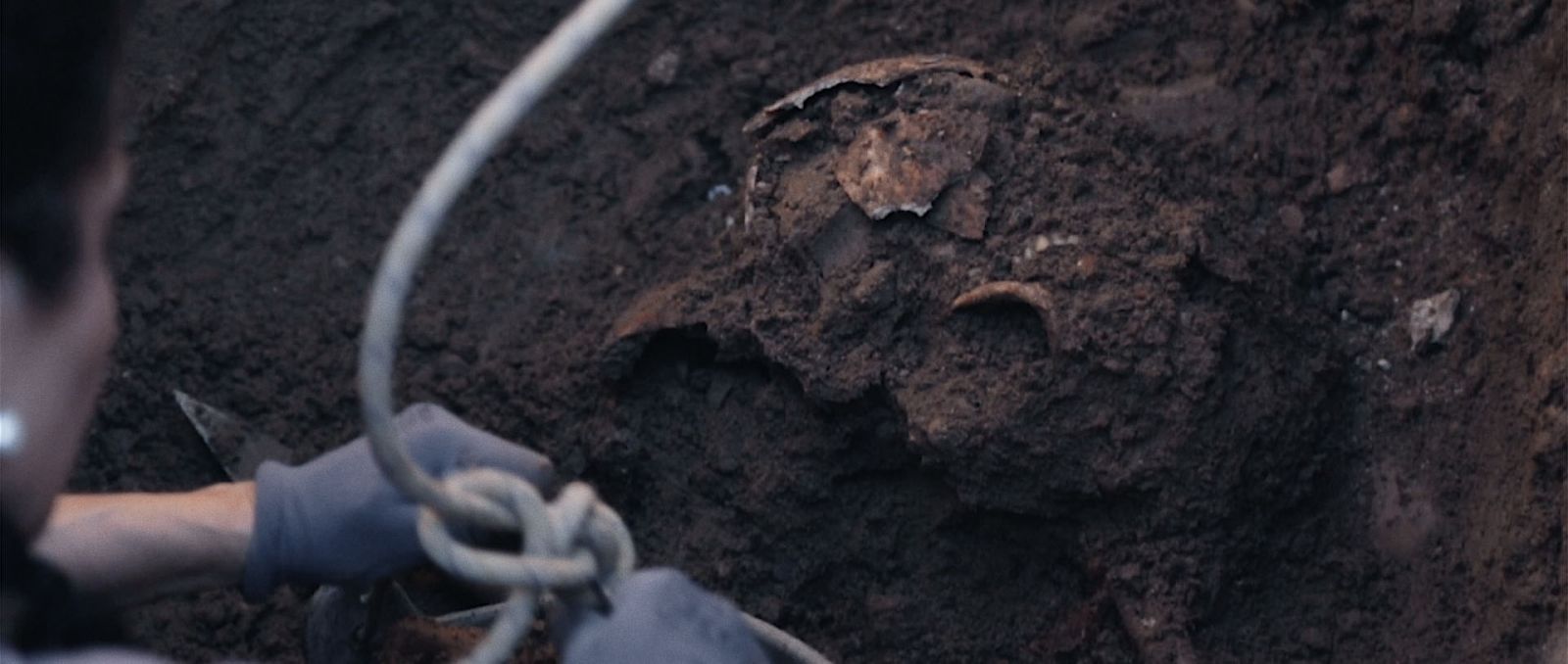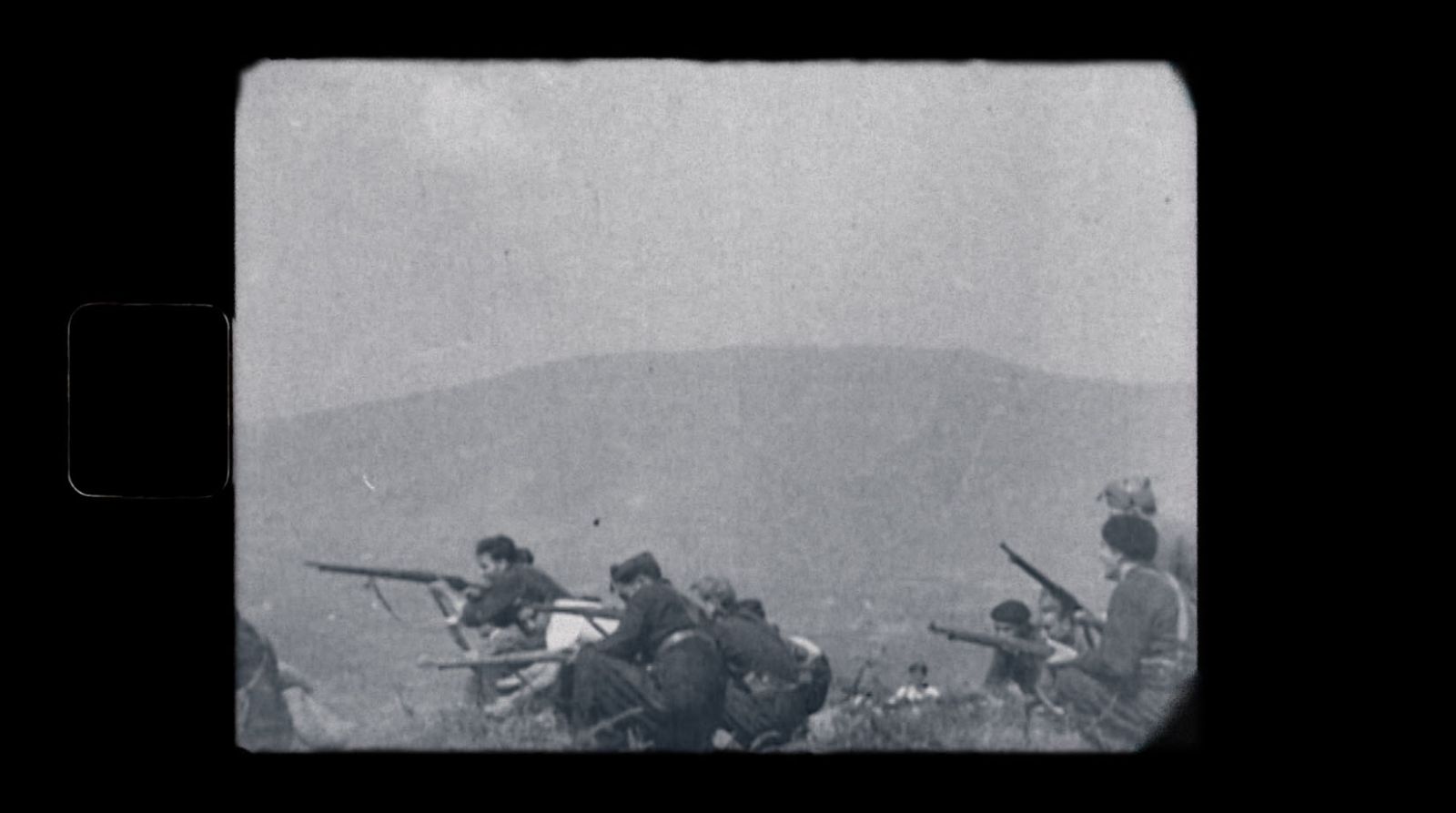
The Hondarribia Jesús Carrera was killed at the age of 33 in Alcala de Henares in 1945, but he had already lived eleven stories, including two wars, exile and secrecy. During the Second Republic he began to militate in the communist movement of Irun and in a few years he became secretary-general of the Spanish Communist Party (PCE).
However, nothing has been known of him so far, and for over 70 years his remains have been forgotten in the cemetery of Alcalá de Henares, until they were abandoned in 2018 and relegated with a tribute.

“Historian Aitzol Arroyo called me to tell me that they should be unearthed. I didn’t know who Jesus Carrera was, but we decided to record that process and collect the experiences of the relatives.” This is what the journalist and documentary Aitor Baztarrika tells us. They then embarked on a larger project: “Based on research by Aitzol and other historians, we saw that the historical character had its essence. How wasn't it discovered before? Why have your bones been in a mass grave until 2018?” explains Baztarrika.
After almost seven years of career, Jesús Carrera: The result has been a documentary called the red of Hondarribia, which in addition to a crowdfunding has had the collaboration of the Provincial Council of Gipuzkoa, the City Council of Hondarribia and the Gogoan Institute. It will premiere this Friday at the Hondarribia Auditorium at the hand of the Orreaga films, at 19:00.
“Deinhumation is something that happened in the present, we could record, but to complete his political biography we did not have audiovisual media, because all the cameras had died. Then we decided to dare”
Forming a puzzle
Baztarrika has led, guided and assembled, but behind it has had a team. From the beginning it has been a great challenge: “Deinhumation is something that happened in the present, we could record, but to complete his political biography we did not have audiovisual media, because all the cameras had died. So we decided to dare,” says the interlocutor.
Hondarribia, Irún, San Sebastián, Pamplona, Aragón, Catalonia, Madrid... It has been a trip with many stops to “geographically complete the puzzle”. They search in the archives and, for example, find a statement that the police made Carrera tortured. They have talked to many experts in the historical context, fourteen interviews in total, such as the historian specialized in the history of the PCE, Carlos Fernández, or the Iraqi researcher Mertxe Tranche.

They also obtained archival testimonies from the former members of the Career: “We have had important surprises, as the testimony of a colleague named Teresa Flour. They coincided in San Sebastian at the beginning of Franco and then Teresa tells how she found herself in jail with Carrera and that she was completely destroyed,” explains Baztarrika.
War, exile, torture
Born in Hondarribia in 1911, Jesús Carrera began with only twenty years of left-wing militancy, first in the UGT union, then in the young communists of Irún, and after settling in San Sebastian, in the Communist Party of the Basque Country. In 1936, when the fascists hit, he turned to the defense of the republic, among other things as commander of the Gernikako Arbola battalion, only 25 years old.

His war trajectory is similar to many others: Asturias, Catalonia… When in 1939 he crossed the border of Le Perthus with thousands of friends, he met the concentration camps of France, among them the “Basque camp” of Gurs, but in the end he was able to escape with the help of his communist colleagues.
Carrera was brutally tortured. “We have that certainty that the knee was broken,” explains Baztarrika. Torture was important in order to identify her remains in the exhumation made in 2018 by Aranzadi under the direction of Pako Etxeberria
According to Navarro leader Jesús Monzón, he began to mediate on the structures of the PCE in Spain and France, entering Francoist Spain again to restructure the party and create communist cells. Thus he was appointed Secretary General of the interior of the party, but on 15 March 1943 he was arrested by the police in a raid shortly after being placed in office.
Carrera was brutally tortured. “We have that certainty that the knee was broken,” explains Baztarrika. Torture was important in order to identify his remains in the exhumation carried out in 2018 by Aranzadi under the direction of Pako Etxeberria. “Teresa Harin told us that they organized a leak in Alcalá de Henares prison, but that Jesus was unable to participate because it was completely broken physically and mentally.” Despite several subsequent escape attempts, Carrera was shot on January 16, 1945.

Outside public space
But the initial question remains there. How did we know nothing about it? For Baztarrika, her early death, shot at age 33, may be related: “In Euskal Herria we have more known Dolores Ibarruri La Pasionaria, who made a long political career. Carrera was general secretary, but he dedicated himself to reinforcing the party’s structure underground, not to give speeches in the public space,” he explains.
The heirs, the nephews Maria and Xabi Carrera, have received very little information from their family member: “My father had a newspaper recession and always said that Gernika was the Battalion commander,” says Xabi Carrera in the documentary, but they knew nothing else. More than all the lands thrown into his body, the 40-year-old dictatorship worked more to cover the memory.

After the premiere in Hondarribia, the authors intend to spread the film in other towns of the Basque Country: “We wanted to make a didactic documentary,” says the director, not only focused on the communist party. In short, Jesus lived important moments in the history of Europe, through which we have tried to show what thousands of citizens had to adapt to very different contexts in a very short time.”
Itoiz, udako sesioak filma estreinatu dute zinema aretoetan. Juan Carlos Perez taldekidearen hitz eta doinuak biltzen ditu Larraitz Zuazo, Zuri Goikoetxea eta Ainhoa Andrakaren filmak. Haiekin mintzatu gara Metropoli Foralean.
Projection of the documentary Bidasoa 2018-2023
Where: Martutene prison, Donostia
When: Friday, 22 December, 16:00h
Available as a network: Perfect on the platform
------------------------------------------------
It's Christmas. Friday after lunch. Let us go through the long... [+]
FIPADOC Nazioarteko dokumental jaialdia berriz heldu da Miarritzera. Urtarrilaren 19tik 27ra ospatuko dute, eta seigarren edizio honetan «Italia eta Afrika» izanen dira protagonistak.
Hands have a varied symbology. With hands the world is driven and with strong fists the command is supported. Power also fights with fists, picking fingers and raising hands up. Hands are necessary for those who have always been the losers of life, for that alone has been an... [+]
Lana finantzatzeko diru bilketa abiatu dute; ahalik eta gehien zabaldu nahi dute ikus-entzunezkoa, protagonistak sufritutakoa ezagutarazteko eta torturak salatzeko. Bi arnas kontatzen dira, torturaren eraginez itxi gabe dauden bi zauri: Sorzabalena eta haren ama Maria Nieves... [+]
Mikel Zabalzari buruzko Non dago Mikel? filmak Urugaiko Nazioarteko Zine dokumentalaren festibalaren sari nagusia irabazi du, AtlantiDoc Saria hain zuzen ere, dokumentu-film luzerik onenarentzat.